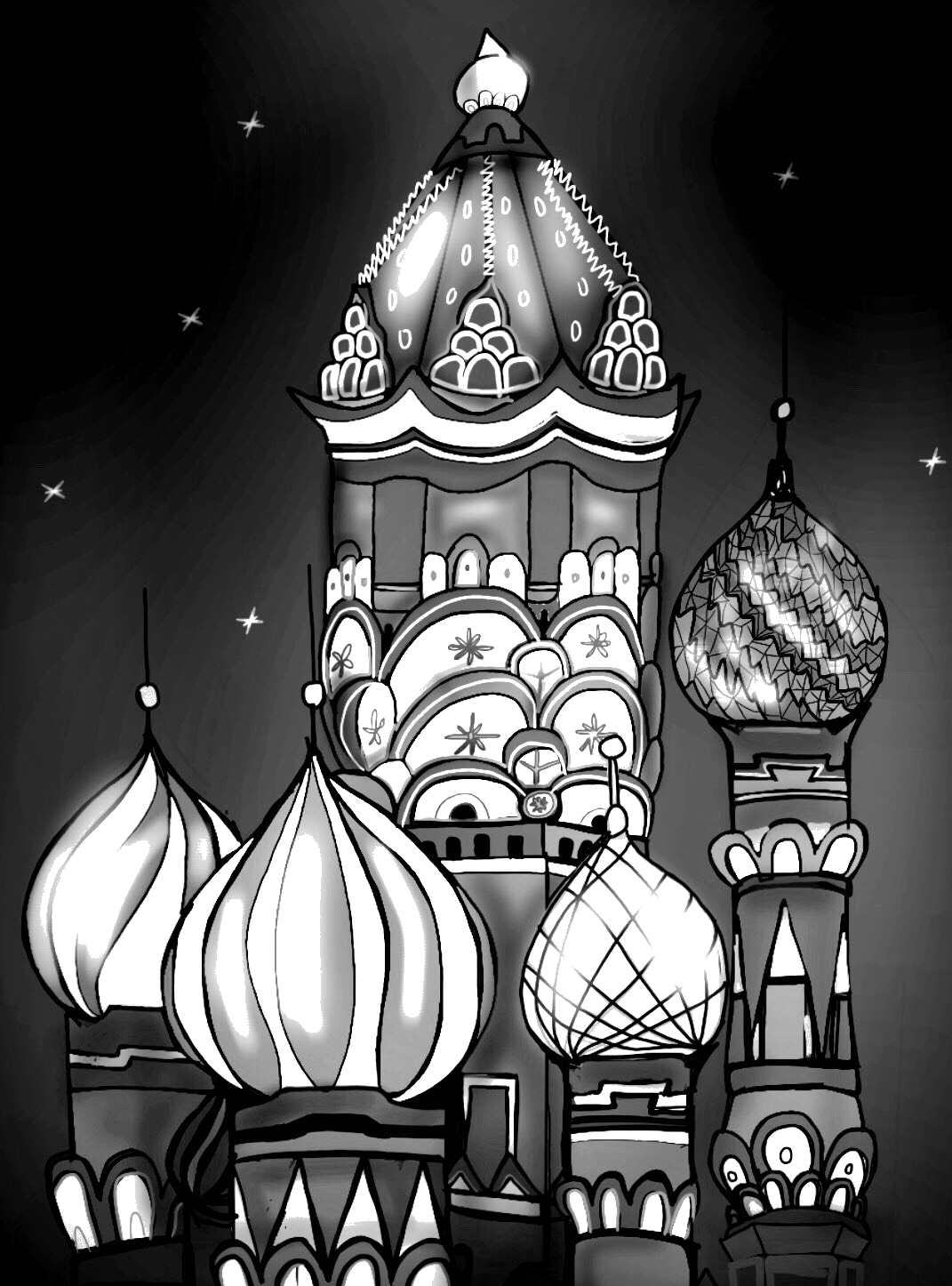
I was sitting on my bed in my dorm in the center of Moscow when a notification on my phone informed me that Russia had hacked the Democratic National Committee. My response wasn’t shock or outrage, but a perverse pride. Here I was, a couple of subway stops from the Kremlin, at the heart of a country that had just launched its first major salvo against my own country’s democratic process. In my blinkered, self-serving view, the hack gave my summer abroad in Moscow a patina of danger and political intrigue. This was, moreover, less than two years after Russia’s invasion and annexation of Crimea as well as the assassination of Boris Nemtsov, Putin’s primary political opponent. I couldn’t wait to come home and regale my friends with stories of what it was like being an American in a country that was reasserting itself as the international community’s bête noir.
A similarly misguided sentiment characterizes Andrei Kaplan, the protagonist of Keith Gessen’s latest novel, “A Terrible Country,” which is set in the summer of 2008. Kaplan, a floundering academic who finds himself priced out of New York, decides to move to Moscow to take care of his ailing grandmother, whom his family had left behind to move to the United States several decades earlier. As he prepares to leave, he muses, “It occurred to me that there was a certain glamor that might attend spending time in an increasingly violent and dictatorial Russia, whose armed forces had just pummeled the small country of Georgia into a humiliating defeat.” But Kaplan quickly sees the fantastical Moscow of his imagination give way to a more complicated reality, just as I eventually did three summers ago.
“A Terrible Country” is Gessen’s first novel after a decadelong hiatus from fiction. In 2008, he published his debut novel, “All The Sad Young Literary Men,” which traced the lives of three self-obsessed, effete 20-somethings who aspire to literary and intellectual fame. The three men spend an inordinate amount of time thinking about sex, consider dating to be “the prime historical movement” of the 21st century and pride themselves on spurning “work at Fidelity and HyperCapital” to sit around and read and argue. Gessen exploits their navel-gazing to great comic effect.
“A Terrible Country” represents both continuity and change from “All The Sad Young Literary Men.” Like the three protagonists of the latter, Kaplan is obscenely well-educated yet contributes little to the world around him. He harbors grand intellectual ambitions — fancying himself an expert on “Russian modernity” and “the ways in which modernity affects the Russian mind”— yet pursues them lackadaisically. He spends a lot of time masochistically checking Facebook for status updates on the professional successes of his graduate school classmates, much like how one of Gessen’s “literary men” obsessively monitors the number of Google hits his name returns. At the same time, “A Terrible Country” also signals a shift away from the frivolity of Gessen’s first novel. When Kaplan arrives in Moscow, he observes, “I had just come from the land of dudes who grew beards, wore shorts, smiled always at some secret melody playing in their heads, and sipped their coffees as they slowly rode their bikes up Bedford Avenue. This was the opposite of that.”
But it still takes Kaplan some time to get his sea legs after arriving in Moscow. He struggles to care for his senile grandmother, is excluded from every local hockey team he tries to join and unwittingly goes on a date with a prostitute via a Russian dating site. As his days fill with countless little indignities, Kaplan almost wishes for existential danger: “I had half expected to be arrested at the airport! I thought I’d be robbed on the train. In fact the only thing I was in danger of being arrested for was accidentally buying too many cappuccinos at the Coffee Grind and not having enough cash on me to pay.” At one point, he exclaims with almost childlike indignance, “What happened to the scary dictatorship? What happened to the bloodthirsty regime?”
Mercifully, Kaplan finally worms his way onto a hockey team, and through its goalie, Sergei, somehow finds himself falling in with a ragtag group of socialists who stage protests against Russia’s current brand of crony capitalism. As he eats and drinks and slogs through chapters of Marx’s “Das Kapital” with the group, which calls itself October, he begins to appreciate the complexity and beauty of their lives. The members of October drink too much and eat crappy food; they fall in love and get divorced; they pinch pennies and worry about their children. In a word, they are human. The disconnect between the grandiosity of the group’s ambitions and the unceremoniousness of their lives is what ultimately affects Kaplan the most. He reflects, “It was a gigantic country, and even now, in the twenty-first century, barely governed. You could do anything, really. And amid this freedom, this anarchy, people met and fell in love and tried to comfort one another.”
At the outset of the novel, Kaplan characterizes his ambition in moving to Russia as “coming up with a new interpretation, a new way of seeing, that would change the way people talked about Russia and thought about Russia.” I think Gessen’s book does this, at least in part. At a time when media portrayals of Russia almost universally focus on the country’s international saber-rattling and oppressive politics, “A Terrible Country” is a reminder that Russia is so much more than a pithy news headline, that the elements that comprise Russian life are as variegated as the different colors on the onion domes of Saint Basil’s Cathedral. It’s a reminder that Russia is at once beautiful and barbaric, pensive and blindly nationalistic, diverse and xenophobic, artistic and oppressive, rich and poor. In short, everything but “terrible.”
Jack McCordick | jack.mccordick@yale.edu .







